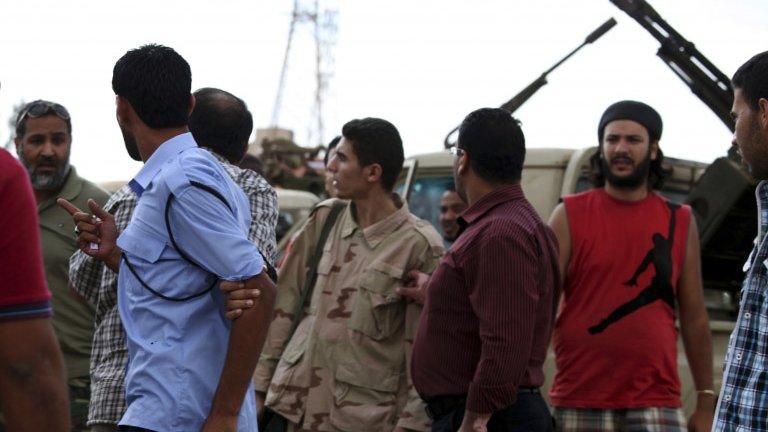Profile: Libyan Islamist Ahmed Abu Khattala
- Published
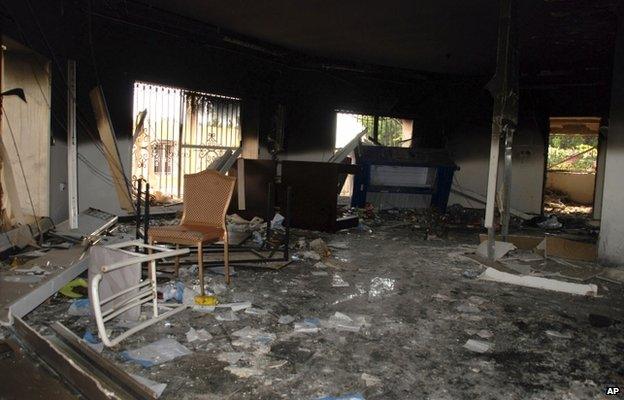
Four Americans were killed in the 2012 attack on US consulate in Benghazi
Libyan Islamist Ahmed Abu Khattala has been captured by US forces in connection with the 2012 attack on the US consulate in Benghazi, in which US ambassador Chris Stevens and three other people were killed.
He is the first alleged conspirator in the attack to be apprehended.
Abu Khattala was known to the US and Libyan authorities, but has never been arrested before and was moving freely in and around Benghazi.
The leader of the Abu Obeida bin al-Jarrah Brigade of the Islamist Ansar al-Sharia militia in Benghazi, he featured in the first criminal charges filed by the US justice department in August 2013.
'Erratic'
Born in the al-Leithi district of Benghazi in 1971, Abu Khattala spent most of his adult life in Abu Salim prison in Tripoli alongside Ansar al-Sharia leader Mohammad al-Zawahi.
Abu Khattala is said to have never completed school or married. He lived with his mother and worked as a construction contractor.
In a 2012 New York Times report, David Kirkpatrick describes Abu Khattala as an "eccentric and malcontent", seen by fellow Islamists as a loner and contrarian, and was even considered a mentally unstable "erratic extremist".
A fellow inmate at Abu Salim who was later elected to parliament said he was "sincere but arrogant" and wondered how he became a leader, although time served in Abu Salim would boost his credentials among potential followers.
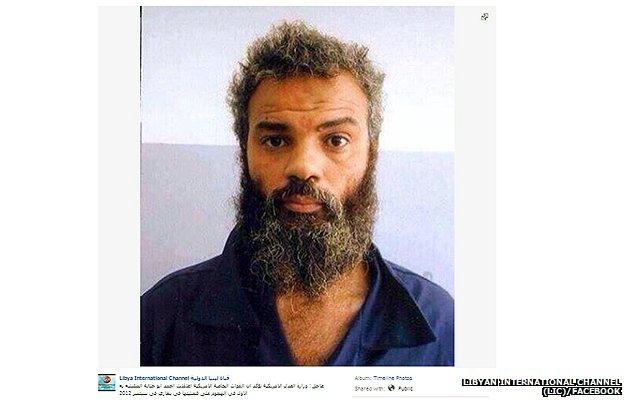
Photo of Ahmed Abu Khattala posted on the Facebook page of Libyan International Channel
Benghazi
Abu Khattala is on record as saying that he "placed the US not far behind Col Gaddafi on his list of infidel enemies". He also accused some of his fellow Islamists of being "insufficiently committed to theocracy". Christianity and Islam are fighting an inexorable war, as far as he is concerned.
He has expressed admiration for al-Qaeda, but denied links to it.
Abu Khattala became notorious in Benghazi when his name was mentioned in connection with the July 2011 killing of Abdul Fatah Younis, a Gaddafi-era interior minister who defected to the opposition but was never forgiven for an earlier crackdown on Islamists. Although he was questioned over the death, Abu Khattala was never prosecuted.
Abu Khattala is thought to be close to militia leaders who developed ties with the Americans after the fall of Col Gaddafi, and there are reports that some of them have even sought to delay his capture.
He managed to escape an attempt on his life in January 2013, when opponents planted a bomb under his car.
Denial
Abu Khattala has repeatedly denied all the accusations against him. He told the Associated Press that he was present in Benghazi during the consulate attack but was not involved. He added that the authorities did not question him at the time.
He was living freely in Benghazi until his capture this month, and has spoken to foreign reporters on many occasions. He repeated his claim of innocence in October 2013 after US special forces captured Abu Anas al-Libi, an alleged al-Qaeda member and suspect in the 1998 bombings of the US embassies in Kenya and Tanzania.
"God willing, this will not happen to me," he told the London Arabic newspaper al-Sharq al-Awsat, adding: "American accusations that I am guilty over Benghazi are false. They should share any evidence they have. There is no basis for an allegation without evidence."
BBC Monitoring, external reports and analyses news from TV, radio, web and print media around the world. For more reports from BBC Monitoring, click here. You can follow BBC Monitoring on Twitter , externaland Facebook, external.
- Published15 March 2021
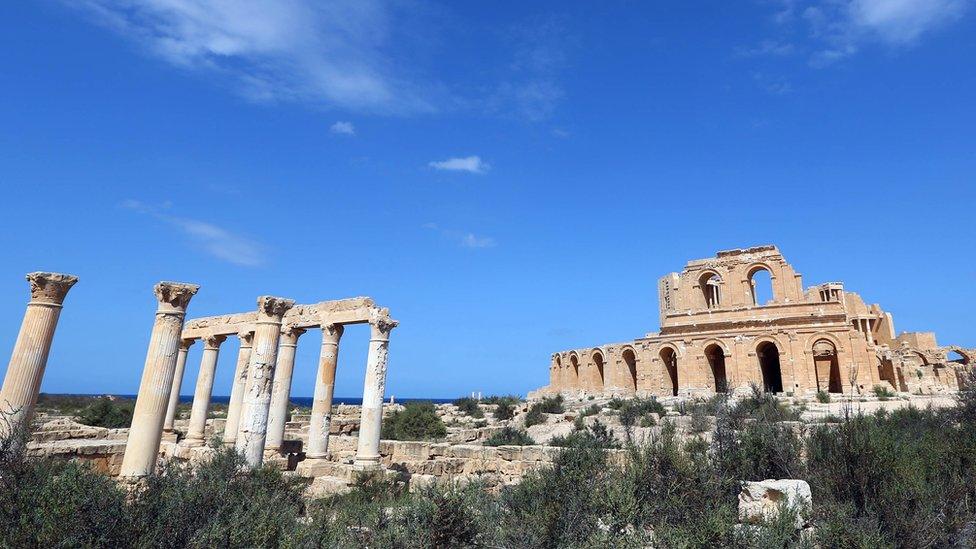
- Published13 June 2014
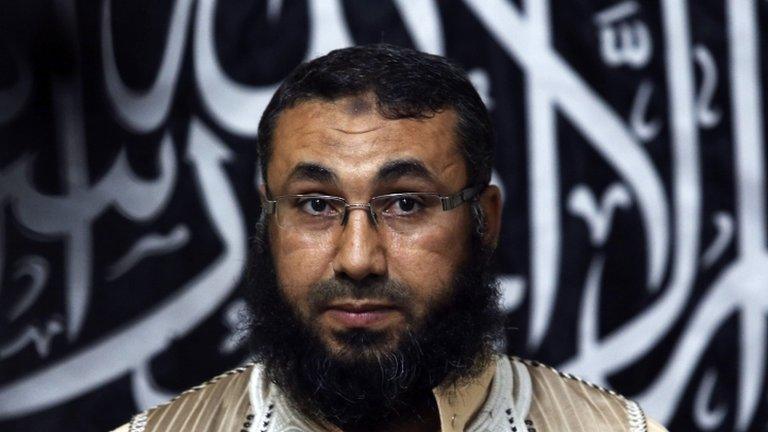
- Published11 January 2016
